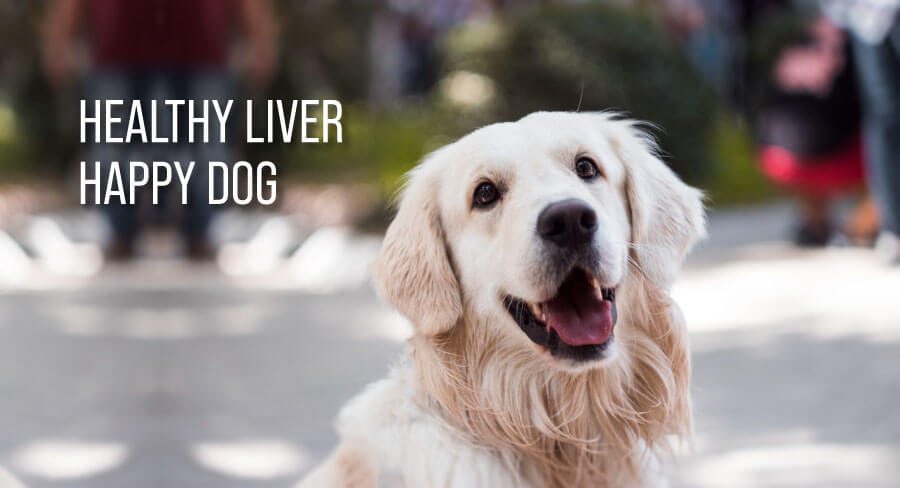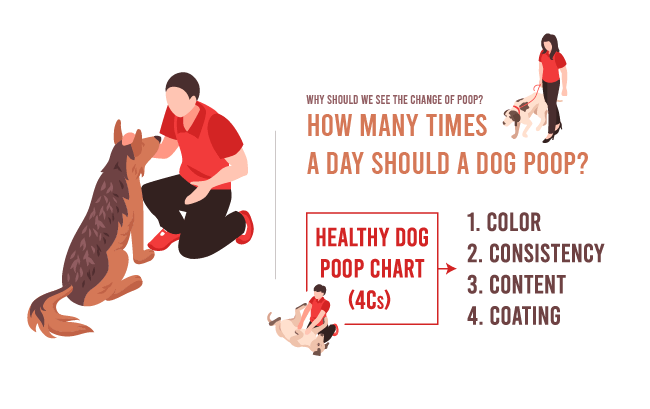Effective Tips to Maintain Good Liver Health in Your Canine Companion
Healthy Liver, Happy Dog
As a responsible pet owner, you want your furry friend to live a long, healthy life. One of the most critical organs in your dog’s body is the liver, which plays a vital role in digestion, metabolism, and detoxification. However, many factors can affect liver health in dogs, including diet, genetics, and environmental toxins.
This article explores some effective tips to help you maintain good liver health in your canine companion, so your dog can be happy, healthy, and full of energy for years to come.

1. Proper Nutrition
Proper nutrition is essential for maintaining good liver health in dogs. A balanced diet rich in high-quality protein, essential fatty acids, and antioxidants can help reduce the risk of liver disease. It is crucial to avoid feeding your dog fatty or processed foods, as these can strain the liver and cause inflammation.
Including vegetables such as broccoli, spinach, and carrots in your dog’s diet can provide essential vitamins and minerals while also helping to support liver function. Additionally, providing your dog with fresh, clean water is essential to keep them hydrated and flush out toxins from the body.
It’s also important to follow your veterinarian’s recommendations for your dog’s diet, as certain medical conditions may require specific dietary changes.
2. Liver Health Supplements
Liver health supplements can also be beneficial in maintaining good liver health in dogs. These supplements can provide additional support to the liver, especially when the dog is at risk of liver disease. One popular dog supplement is Denamarin, which combines S-Adenosylmethionine (SAMe) and silybin, a natural antioxidant extracted from milk thistle.
Denamarin for dogs has been shown to improve liver function, reduce inflammation, and protect liver cells from damage. In addition, it is available in chewable tablets, making it easy to administer to your furry friend.
However, you must always purchase supplements from a reputable and reliable source and follow the instructions carefully to ensure your dog receives the full benefits. PetCareRx is one source that can provide medicine online with free shipping and other discounts.
PetCareRx has Denamarin for dogs in three different packaging options based on the dosage required. The 90 mg dosage is available in a blue box for small dogs, the 225 mg dosage comes in a green box for medium dogs, and the 425 mg dosage is packaged in a purple box for large dogs.
The site recommends that Denamarin Tablets be given orally once daily for 15 to 30 days. Administer them on an empty stomach at least one hour before feeding, as food can reduce the absorption of S-Adenosylmethionine.
3. Regular Checkups and Screening
It’s essential to schedule regular visits with your veterinarian to monitor your dog’s liver function and identify any potential issues before they become severe.
During checkups, your veterinarian may perform blood tests to assess liver function, check for signs of liver disease, and identify any potential risk factors. They may also perform an ultrasound or other imaging tests to examine the liver and detect abnormalities.
Regular checkups can also significantly benefit your dog’s overall health. However, according to Canine Journal, the regular checkup schedules depend on the age of the dogs. For puppies, up to 16 weeks, checkups every 3-4 weeks are crucial, whereas senior dogs above the age of 7 should go for checkups twice a year.
By staying on top of your dog’s liver health through regular checkups and screening, you can help prevent liver disease and ensure your furry friend remains happy and healthy for years.
Read More: Taste of the Wild Cat Food Reviews
4. Limiting Toxins and Medications
Certain chemicals, such as pesticides and cleaning products, can be toxic to the liver and cause long-term damage. Therefore, it’s important to keep these products out of your dog’s reach and avoid using them in areas where your dog spends time. Similarly, certain medications, including nonsteroidal anti-inflammatory drugs (NSAIDs), can also harm the liver.
It’s essential to follow your veterinarian’s instructions carefully when giving your dog any medications, and never give them medications meant for humans.
If your dog does come into contact with toxins or is prescribed medications that may affect the liver, it’s crucial to monitor them closely and seek veterinary care immediately. Contact your vet if you notice any signs of liver disease, such as vomiting, diarrhea, or lethargy.
5. Proper Hydration
Proper hydration is essential for maintaining good liver health in dogs. Dehydration can strain the liver and make it harder for the organ to perform its essential functions. Therefore, it’s essential to ensure your dog has access to clean, fresh water and encourage them to drink throughout the day.
According to the American Kennel Club, dogs need to consume sufficient water daily to maintain good health. As a general guideline, dogs should intake one ounce of water for every pound of their body weight daily. It can also decrease their risk of developing health issues, including liver disease.
To encourage proper hydration in your dog, consider using a water fountain or providing multiple water bowls in different areas of your home. You can also add flavor to your dog’s water or offer them wet food, which can help increase their overall water intake.
6. Stress Management
Stress can have a significant impact on your dog’s liver health. Chronic stress can lead to an overproduction of cortisol, which can cause inflammation and damage to the liver over time. Therefore, managing your dog’s stress levels is essential to help maintain good liver health.
To help manage stress in your dog, consider providing them with plenty of exercises, mental stimulation, and a comfortable and secure living environment. Additionally, certain calming supplements or pheromone sprays can help reduce stress levels.
If your dog is experiencing chronic stress or anxiety, it’s essential to seek veterinary care to identify any underlying causes and develop a treatment plan. In order to manage your dog’s stress levels and prevent possible liver damage, your veterinarian may suggest utilizing behavior modification techniques or prescribing medication.
Read More: Do Great Danes Swim?
7. Exercise and Weight Management
They are crucial factors in maintaining good liver health in dogs. Obesity can increase the risk of liver disease and other health issues, including diabetes and heart disease. Regular exercise can help prevent obesity and promote good liver function in dogs.
Recent data by Morris Animal Foundation shows that obesity is a growing problem in dogs, with an estimated 56% of dogs in the United States classified as overweight or obese. It highlights the need for proper exercise and weight management in furry companions. However, most pet owners overlook the situation and its potential danger.
To promote weight management and exercise in your dog, consider taking them for daily walks or runs and engaging in playtime activities. If your dog is already overweight or obese, it’s essential to seek veterinary care to develop a safe and effective weight loss plan.
To Sum it Up
Maintaining good liver health is crucial for ensuring the overall well-being of your canine companion. Following the tips outlined in this article can help keep your dog’s liver healthy and functioning properly.
Remember that prevention is key in dogs’ liver disease, so taking a proactive approach to your dog’s health is essential. Be sure to consult your veterinarian regularly and seek prompt veterinary care if you notice any signs of liver disease or other health issues in your dog.



